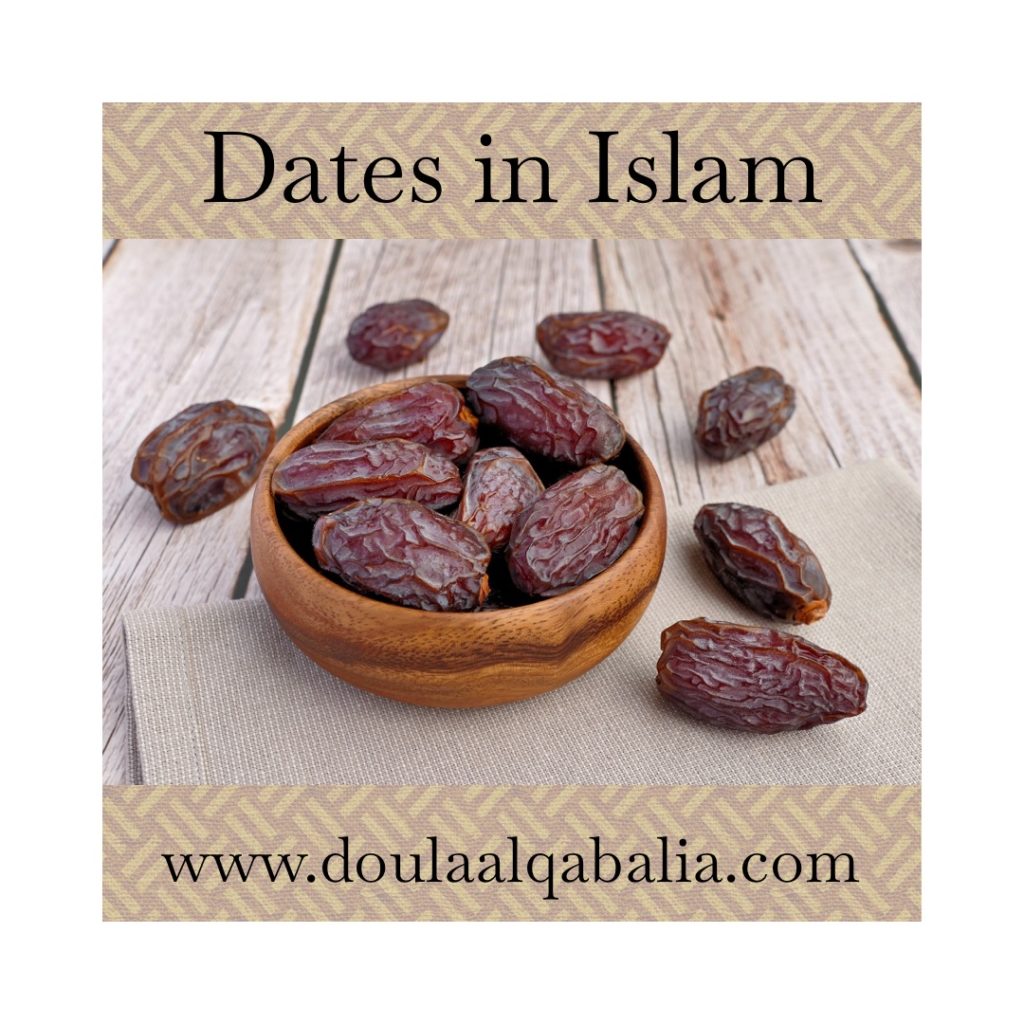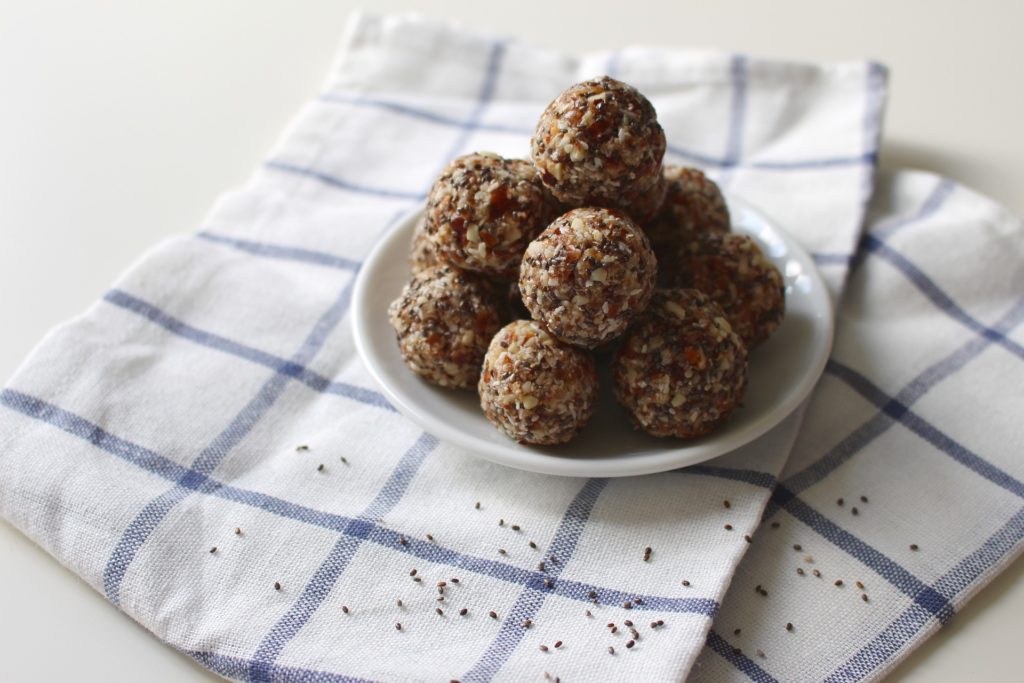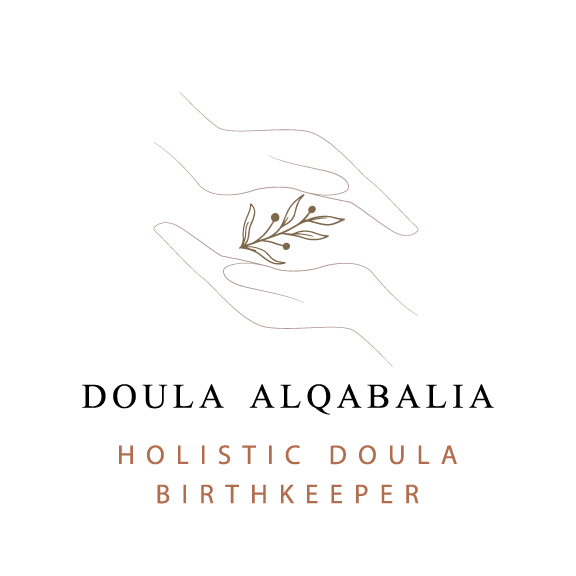
The importance of Dates in Islam
Dates are mentioned multiple times in the Quran and Sunnah (ahadith), and by the scholar Ibn Al Qayyim Al-Jawziyya. The references are made to all the parts associated with the date fruit, such as the tree itself and even we, as Muslims, use the date seed powder, particularly that of the Ajwa Date.
Allah’s Messenger (ﷺ) said, “He who eats seven ‘Ajwa dates every morning, will not be affected by poison or magic on the day he eats them.” [Sahih al-Bukhari 5445. In-book reference : Book 70, Hadith 7]
Ibn al-Qayyim said that fresh dates were nourishing and enriching for the body, and referred to the Prophetic hadith in which the Messenger of Allah (sallAllahu alayhi Wasallam) used to break his fast with some fresh dates, before he prayed, and if there were none, then with dried dates (tamarat). If there were none of these then he would take a drink of water. [Ibn Hanbal, Musnad III. 164]
Dates are a good source of fibre and naturally occurring sugars like glucose, fructose and sucrose. Dates are also one of the best natural sources of potassium.
Potassium is an essential mineral needed to maintain muscle contractions, including the vital heart muscle, and to maintain a healthy nervous system and to balance the body’s metabolism. Since potassium is not stored in the body, and much is lost in perspiration, it must be continually replenished.
Dates also contain a variety of B-complex vitamins – thiamin, riboflavin, niacin, vitamin B6 and pantothenic acid (vitamin B5). These vitamins have a variety of functions that help maintain a healthy body – to metabolize carbohydrates and maintain blood glucose levels, fatty acids for energy, and they help make hemoglobin, the red and white blood cells.
At the time of Ibn Az-Zubair, we were struck with famine, and he provided us with dates for our food. `Abdullah bin `Umar used to pass by us while we were eating, and say, “Do not eat two dates together at a time, for the Prophet (ﷺ) forbade the taking of two dates together at a time (in a gathering).” Ibn `Umar used to add, “Unless one takes the permission of one’s companions.” [Sahih al-Bukhari 5446. In-book reference: Book 70, Hadith 7]
The Prophet (ﷺ) said, “There is a tree among the trees which is similar to a Muslim (in goodness), and that is the date palm tree.” [Sahih al-Bukhari 5448. In-book reference: Book 70, Hadith 77]
Giving the date at birth
Over 1400 years ago, when a child was born, the Prophet ﷺ made it his Sunnah to take a small part of a date and place it in their mouth. He would then chew it until it was soft and then rub it onto the palate of the new born baby.
This is called ‘Tahneek’ which means putting something sweet, such as dates or honey, in the child’s mouth when they are first born.
In recent years, BBC News has reported that “experts” have said – “A dose of sugar given as a gel rubbed into the inside of the cheek is a cheap and effective way to protect premature babies against brain damage.”
[source: https://www.bbc.co.uk/news/health-24224206]
This is why Muslims follow the Sunnah of the Messenger of Allah ﷺ without questioning it. Science is only now discovering a tradition that was introduced 1400 years ago because Islam was and still is the forefront of development.
The evidence from Islam is this:
- It was reported that Abu Moosa said: “I had a baby boy, and I brought him to the Prophet (peace and blessings of Allaah be upon him). He named him Ibraaheem, did Tahneek with some dates and prayed for Allaah to bless him, then he gave him back to me.” (Narrated by al-Bukhaari, 5150; Muslim, 2145).
Dates during pregnancy
It is not only right after the birth of the baby that the dates are recommended, but also during the entire pregnancy and particularly during the postpartum period.
The Prophet Muhammad recommended eating dates and we now know some of the medicinal benefits of doing so! Dates are beneficial during pregnancy, labour, childbirth and during the postnatal period.
Studies have shown that dates contain “stimulants which strengthen the muscles of the uterus in the last few months of pregnancy”. [Omar-Muhammad, R. (2003, Dates: The Crown of Sweets, The Muslim Woman, 4 (7):26]
Dates are additionally a great source of energy and a quick one at that! So not only do they help to support and activate the delivery process, they also provide you with that added boost of energy, which is exactly what is required during the last stages of pregnancy and labour.

During the postpartum period, dates can help in the restorative process and as they are a high energy food, can benefit the nursing mother. Dates contain potassium, glycine and threonine, all of which help to stimulate the milk hormone prolactin. Al Shahib and Marshall state: “Dates may be considered as an almost ideal food, providing a wide range of essential nutrients and potential health benefits.” [Al-Shahib, W. & Marshall, R. J. (1993), International Journal of Food and Science Nutrition, 54 (4):247-259]
